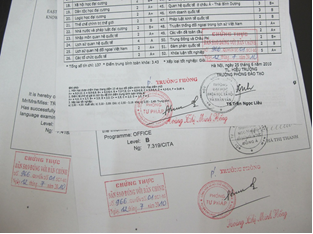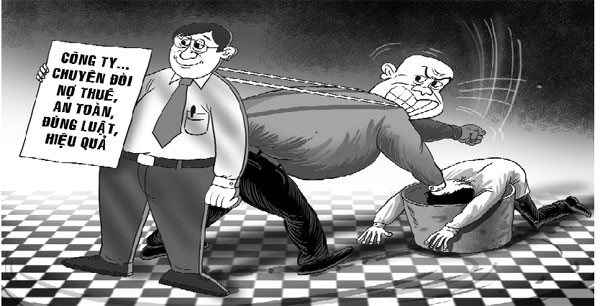Compared to previous drafts, the 12th draft of the amended State Audit Law has shown significant progress. Many comments and suggestions from National Assembly delegates and experts have been incorporated by the Drafting Committee. Several contents included in previous drafts with the aim of making the State Audit Office (SAO) a "superpowerful" agency have been omitted. The structure of the law text and the document techniques are relatively well-executed.

However, to further improve the quality of the State Audit Law (amended) when approved by the National Assembly, I would like to raise several points for further research and discussion as follows:
Regulations on the activities of the State Audit Office are very vague
The draft devotes too many regulations on the organization of the State Audit Office but is very vague about the activities of the State Audit Office. This is reflected in the regulations on the organization and content directly related to the organization (including titles, personnel, tasks, powers, operational guarantees, responsibilities, etc.) from articles 9 to 32 with 7 pages, articles 39 to 46 with 3 pages, articles 62 to 71 with 1.5 pages (a total of 42 articles with 11.5 pages), while regulations on state audit activities from articles 33 to 38 (6 articles) with 1.5 pages, regulations on administrative procedures for state audits from articles 47 to 57 (11 articles) with 2.5 pages. This ratio shows that this is understood as the Draft Law on the organization and (internal) activities of the State Audit Office, while if it is a State Audit Law, every subject (except for the State Audit Organization) from the Legislature, the Executive, and the audited organizations all want to know clearly and specifically about the content of state audit activities and how state audit activities differ from internal and independent audit activities.
Regarding the responsibilities and obligations of the State Audit Office, the regulations are incomplete.
The draft is heavy on defining the rights of the State Audit Office rather than the responsibilities and obligations of this Organization, expressed: Provisions on the responsibilities and obligations of the State Audit only prescribe for the position of the General Auditor and internal positions but have not yet stipulated the responsibilities and obligations of the State Audit Organization toward the general public, the National Assembly, and the audited organizations. Meanwhile, the responsibilities and obligations of agencies, organizations, and individuals, including the National Assembly, the Government of Vietnam, etc., and audited organizations towards the State Audit Organization are relatively fully and clearly defined. This demonstrates that the drafting of this Law is for the State Audit Organization and not for the National Assembly, representing the entire population to issue a general law that can be fair and objective to all subjects when participating in actions governed by the law.
The nature of the State Audit Office's activities needs to be clarified further
Clause 1, Article 118 of the 2013 Constitution stipulates: "1. The State Audit Office is an agency established by the National Assembly, operating independently and only adhering to the law, to audit the management and use of public finances and assets."
The above regulation clearly defines the legal position of the State Audit Office but does not clearly specify the nature of the State Audit Office's activities. Clearly, the State Audit Office is not a state management agency like the Ministries, ministerial-level agencies under the Government of Vietnam. The State Audit Office is also not entirely similar to the specialized Committees of the National Assembly.
When the important issue mentioned above is not clarified, there will be no basis to define the functions, tasks, and powers of the State Audit Office. For example, since it is not a state management agency like the Ministries, ministerial-level agencies, the State Audit Office does not issue regulatory documents, and therefore, the tasks and powers of the General Auditor also differ from those of ministers, etc.
Article 13 of the 2005 State Audit Law stipulates: "The State Audit Office is a specialized agency in the field of state financial inspection, established by the National Assembly, operating independently and only adhering to the law."
It is proposed to inherit the provisions of Article 13 of the 2005 State Audit Law to affirm that the State Audit Office is a specialized agency in the field of state financial inspection, assisting and advising the National Assembly and the National Assembly Standing Committee in exercising supreme control over state finances.
Regarding the legal value of the audit report
Clause 1, Article 7 of the draft Law stipulates: "1. The audit report of the State Audit Office has binding force for audited entities regarding violations in the management and use of public finances and assets and is the basis for complaints and complaint resolution."
There are the following issues that need further research and discussion regarding the provision in Clause 1, Article 7 above:
a) Is the audit report of the State Audit Office a legal normative document? The answer is no because the State Audit Office is not a state management agency like the Ministries, ministerial-level agencies as stated above.
b) According to Clause 1, Article 7 of the draft Law, the State Audit Office has exercised the right of an executive and judicial body with the word mandatory along with the category of violations, but the unreasonable point is that these violations are merely the unilateral assessment and evaluation of a specialized organization, not the conclusion of a competent authority. Therefore, it can only be mandatory after the executive body (specialized state management ministry, police department, court) determines it is a violation; otherwise, it must self-review to comply before the matter is transferred to the specialized body.
c) Which agency checks and approves the audit report of the State Audit Office? Auditing is a deep specialized field. Therefore, there may be situations where the excuse of "specialization and expertise" is used to issue unreasonable conclusions, causing damage to the audited entities.
Based on the above analysis, it is proposed to amend Clause 1, Article 7 of the draft Law as follows: "1. The audit report of the State Audit Office, after being approved by the National Assembly Standing Committee, is binding for audited entities regarding violations in the management and use of public finances and assets and is the basis for complaints and complaint resolution."
Regarding the audited entities
Clause 10, Article 58 of the draft Law stipulates that one of the entities to be audited by the State Audit Office is: "Enterprises managing and using state capital and assets. For enterprises in which the State holds 50% or less of charter capital, the General Auditor decides on the objectives, criteria, content, and appropriate audit methods or the State Audit Office verifies the results of the internal audit or independent audit of the enterprise."
It is proposed to clarify as follows: "Enterprises with 100% state capital and enterprises in which the state holds more than 50% of charter capital..."
Reason: If the State Audit Office audits even those enterprises where the state holds a low percentage of charter capital, it would be a waste of state budget funds. Furthermore, those enterprises where the state holds less than 50% of charter capital should be audited by independent auditors, and the State Audit Office should verify them (if deemed necessary) as prescribed in the draft for greater efficiency.
Source: vica.org.vn
 Article table of contents
Article table of contents









